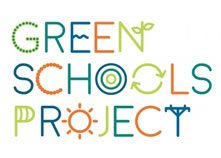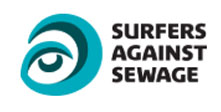This month we’re focusing on the many ways we can learn about the environment and how we can help it. As the month goes on we’ll be sharing some of our own pledges and tips - things we’re trying out in the Playforce office… and we’ll suggest some of the ways you can use your playground to carry on the learning.
To start with, though, we wanted to have a look at the schemes and resources available for you. Whether you’re looking for a recognised programme to join in with or teaching resources, we’ve put some of our favourites together here, for you.
EcoSchools
It makes sense to start with the one we’ve all heard about. Eco-Schools is a global programme engaging 19.5 million children across 67 countries, making it the largest educational programme on the planet. All registered Eco-Schools follow the same Seven Step framework in order to achieve the internationally recognised Eco-Schools Green Flag award. All of these schools also have one or possibly two volunteer Eco-Coordinators who work with pupils to run the Eco-Schools programme. You can also filter your area of focus across ten environmental topics ranging from marine and biodiversity through to litter, waste, water and (our favourite) school grounds.
To find out more and register click here: https://www.eco-schools.org.uk/about/howitworks/
Green Schools Project

Similar to the previous example Green Schools Project is a scheme set up to enable young people to fulfil their potential by providing resources and support to schools to engage them in environmental projects, building their skills and aspirations while encouraging them, their community and wider society to live in a more sustainable way.
Schools not only get a university student volunteer to help to run the regular meetings of the Eco-Team and support the projects but three visits across the year from an expert with experience of running highly successful environmental projects in schools to support the programme’s implementation, as well as support materials across a range of subjects. They’ll also join an online community of other schools involved in the programme to share ideas and opportunities.
WWF
Where would we be without the World Wildlife Fund? This leader in the field of environmental protection and activity has worked with over 10,000 schools. In their own words: “We want to inspire and equip pupils to care for our beautiful planet and we’re asking for your help; so we've created a range of free resources to support you and your pupils in putting sustainability at the heart of your school.” You can filter these by subject and age: https://www.wwf.org.uk/get-involved/schools/resources
Recycle Now
You might prefer to start with something a bit simpler - like getting involved with recycling more. The Recycle Now programme is a national scheme with regional support.
They also provide lots of teaching resources for Key Stages 1 and 2 including films and linked activities which can be used in the classroom, assemblies or during eco-weeks. They all feature the popular characters, Busta and Pong!
Clean Up UK and Litter Action
An oldy but a goody… one of the easiest places to start is with a litter pick. Linked to Eco Schools Litter Action focuses on tips (and a downloadable resource pack) for running a whole school litter programme. The pack focuses on the harmful effects of litter on wildlife.
The pack includes shocking facts about litter, assemblies and displays, how to incorporate the issues into the curriculum, 'King Wastealot's' story and play, and how to take practical and sustainable action. https://www.litteraction.org.uk/infocentre/schools
Plastic Free Schools

Another focused campaign, Surfers Against Sewage have set up their Plastic Free Schools programme to “equip and empower young activists with the tools to create positive, lasting environmental change”. Created to hit key curriculum targets from KS1 – KS3, the scheme’s five ‘Objectives’ guide students through the plastic free schools process in an easy to understand, purposeful and fun way… and with lots of lesson plans and resources to help teachers.
EcoACTIVE
EcoACTIVE is an innovative charity set up to use hands-on, practical approaches to explore the issues around sustainability. They’ve created resources and immersive experiences for children, particularly focusing on waste prevention and recycling. They produced an education pack including curriculum-linked lesson plans for all the activities they have been running in schools. Click here to download it!
Carbon Trust
This one is a little harder to digest and tailored more for school managers and staff, but it’s still worthwhile. The Carbon Trust has done lots of research into how schools use energy, and some of the ways they (as an organisation) can look to reduce their environmental footprint. Worth a read and packed full of ideas! https://www.carbontrust.com/media/39232/ctv019_schools.pdf
Sustainable Schools Alliance
Linked to the previous suggestion, the SSA is a structure that allows schools to assess their sustainability across a range of ‘doorways’ relating to campus, curriculum and community. You can complete their very detailed audit to identify areas for improvement. http://sustainable-schools-alliance.org.uk/
Teaching resources
In addition to the various established programmes there are a number of places you can find fantastic teaching resources to help with this. Here are our top five:
TES
The Eden Project
The RHS School Gardening campaign
The Young People's Trust for the Environment
Twinkl
And don’t forget… the World Environment Day website also has some great resources, examples and ideas.
We’re certain to have missed some so we’d love to hear your suggestions to add to this list. You can let us know by contacting claire.thew@playforce.co.uk